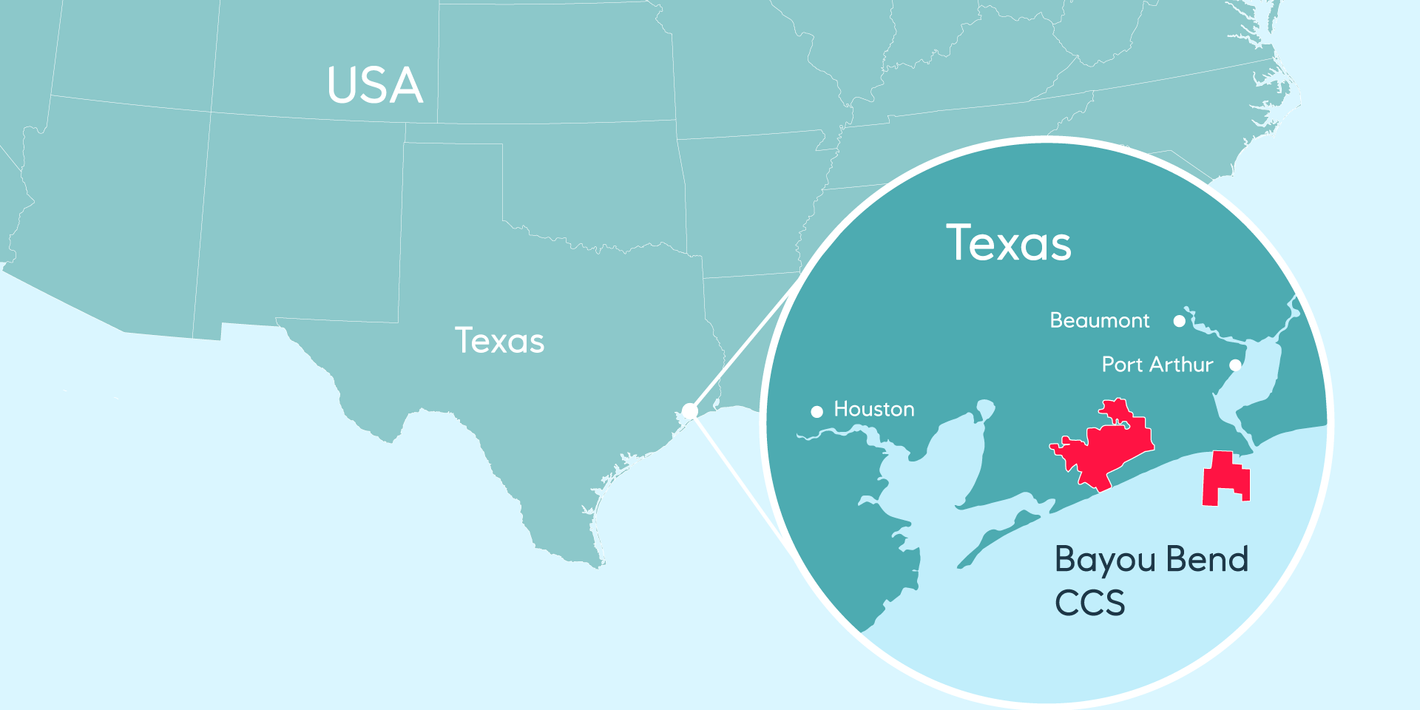Equinor acquires stake in Bayou Bend CCS Project

Equinor has acquired a 25 percent interest in Bayou Bend CCS LLC, positioned to be one of the largest US carbon capture and storage projects located along the Gulf Coast in Southeast Texas.
“Commercial CCS solutions are critical for hard-to-abate industries to meet their climate ambitions while maintaining their activity. Entering Bayou Bend strengthens our low carbon solutions portfolio and supports our ambition to mature and develop 15-30 million tonnes of equity CO2 transport and storage capacity per year by 2035. Our experience from developing carbon storage projects can help advance decarbonization efforts in one of the largest industrial corridors in the US,” said Grete Tveit, senior vice president for Low Carbon Solutions in Equinor.
Bayou Bend is positioned to be one of the largest CCS solutions in the US for industrial emitters, with nearly 140,000 gross acres of pore space for permanent CO2 sequestration and gross potential storage resources of more than one billion metric tons. The Bayou Bend total acreage includes nearly 100,000 gross acres onshore in Chambers and Jefferson Counties, Texas, and approximately 40,000 gross acres offshore Beaumont and Port Arthur, Texas.
“We look forward to working together with our partners to further mature this exciting project. Bayou Bend is Equinor’s first announced low carbon solutions project on the Gulf Coast. Alongside our upstream production and offshore wind developments, we’re strengthening our position as a broad energy company and expanding our footprint in the Gulf region,” said Chris Golden, senior vice president and US Country Manager. "Bayou Bend is a significant milestone towards growing our low carbon portfolio in the US.”

Bayou Bend is a joint venture between Chevron U.S.A. Inc., through its Chevron New Energies division, Talos Energy Inc., through its Talos Low Carbon Solutions division, and Equinor. Equinor acquired its 25 percent share through the purchase of Texas Carbon 1 LLC, a subsidiary of Carbonvert. Chevron is the operator with 50 percent interest, and Talos holds 25 percent interest.
“Delivering lower carbon solutions to harder-to-abate industries is fundamental to Chevron New Energies’ mission, and as a Southeast Texas native, I know how vital these industries are to our local communities and their economies,” said Chris Powers, vice president, CCUS, Chevron New Energies. “We thank Carbonvert for its work on the project, and we look forward to Equinor bringing its expertise and resources to Bayou Bend as it joins the partnership.”
The project’s location near major industrial corridors in the Houston Ship Channel and Beaumont / Port Arthur area will provide a potential decarbonization option for industries such as refining, cement, steel, chemicals, and manufacturing. Industrial emissions in the Texas Gulf Coast region are estimated to be approximately 100 million metric tonnes of CO2 per year.
“We continue to make significant progress in developing Bayou Bend, which we believe will be a premier regional carbon storage hub solution for Texas’ largest industrial region. Equinor is a welcomed addition to the partnership. Their experience and track record further enhance the joint venture, which is committed to developing safe, reliable, cost-effective lower carbon solutions while enabling continued economic growth,” said Robin Fielder, executive vice president – Low Carbon Strategy and Chief Sustainability Officer of Talos.
Latest news

Notifiable trading
A close associate to a primary insider in Equinor ASA has sold shares in Equinor ASA:

Investigation following well control incident on Deepsea Bollsta
Equinor has completed the investigation of a well control incident on the “Deepsea Bollsta” drilling rig on 23 September 2025. The incident is classified in the company's highest category of severity.

Notifiable trading
A close associate to a primary insider in Equinor ASA has sold shares in Equinor ASA: